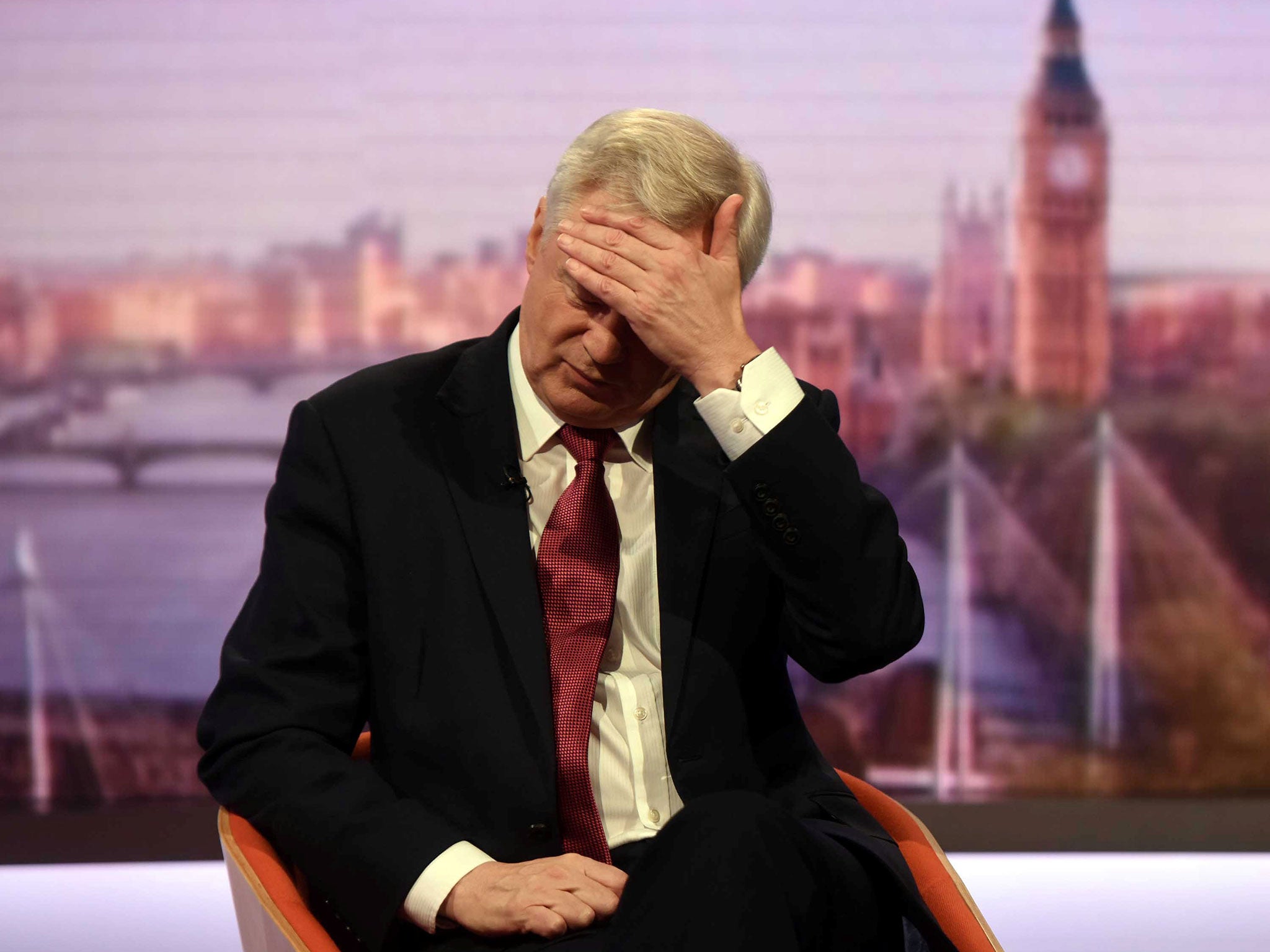Brexit negotiations are going to lead us right back to where we began
The prevailing mood music is one in which ministers have to accept political compromises – like the free movement of people


“The whole object of travel,” said the writer and poet GK Chesterton, “is not to set foot on foreign land; it is at last to set foot on one’s own country as a foreign land.”
If, as appears to be the case, with much prodding from the Treasury the Brexit department has accepted it must take the turn marked “trade” as opposed to the one marked “sovereignty”, it should soon accept that they’re on a road that will lead, albeit with due wonderment, right back to where it starts.
Privately, Brexit officials appear to have conceded that a cake cannot be both kept and eaten. They are telling ministers not only that they will have to choose between sovereignty or the economy, but that they must choose the latter.
While this was always the subtext, it was not meant to be so explicitly in the script. Theresa May’s Lancaster House speech and the subsequent Brexit White Paper made clear the Government would pursue a full free trade agreement on both goods and services (something no third country has ever achieved with the European Union), while removing itself completely from the jurisdiction of the European Court of Justice and ending free movement.
This entirely imagined reality was meant to charm the voters to sufficient degree to allow May to sack the Chancellor. But the script did not run to course, to the extent that she is no longer the one writing it.
Now, the prevailing mood music is one in which ministers have to accept political compromises in order to hang on to conditions similar to those in the European Economic Area, like Norway, who accept free movement of people.

Quite what can be negotiated in the year and a bit that remains is highly uncertain (the terms must be broadly agreed by October 2018), but the further the Government and in turn the public walk down this line, the sharper the reality will come into focus, that the UK’s current – and they are still current – arrangements with the EU, are themselves the product of decades of hard negotiation, and are already uniquely favourable.
Last week, David Davis spoke of the creation of some sort of “supranational body” to oversee the rights of EU citizens based in the UK, as the jurisdiction of the European Court of Justice is unacceptable. Such provisions are a legal mess and a minefield, and frankly unnecessary. Davis’s recently departed communications chief, James Chapman, said in an interview at the weekend that such red lines had made his former boss’s job almost impossible.
On services, and particularly financial services, the City of London dominates the lucrative euro-clearing business yet is not in the euro, a right which was not easily won, and which many French and German financiers resented long before the 23 June last year.
On budgetary contributions, the UK makes a smaller per capita contribution than Italy, and receives a huge rebate.
On free movement, the UK is in the EU but not in the Schengen open-border agreement. UK passport-holders do not have the same frictionless travel through European airports as, say flights between Paris and Berlin, but, even in the most sensationalist scenario, would be terrorists crossing the Mediterranean cannot cross freely into the country.
On the economy, an as-yet-unpublished Treasury document indicates that the cost of leaving the single market cannot be recouped even in the medium to long term by free trade deals elsewhere, be they with India, China, the United States, Australia or whomever else.
So yes, we are on a journey back to where we started. The question is whether, in the end, we will be allowed to travel all the way there, either by public mood or by the EU itself. Some vastly inferior destination seems more likely. A dull suburban town, from which the old metropolis pokes out from beneath the horizon. But political life has never been so volatile or unpredictable. We could yet make it.
Join our commenting forum
Join thought-provoking conversations, follow other Independent readers and see their replies
Comments
Bookmark popover
Removed from bookmarks